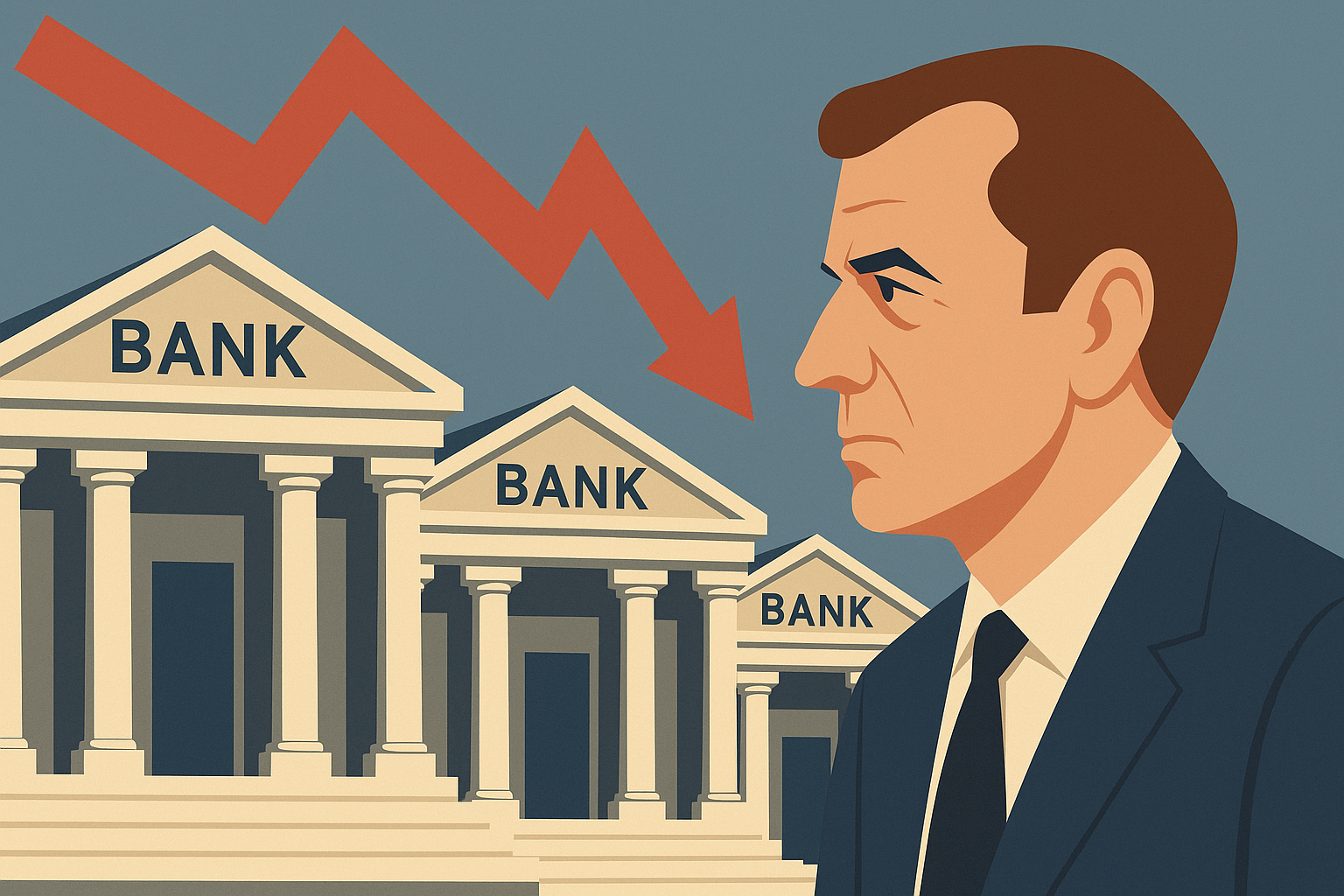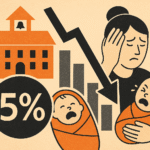French banks are once again bearing the brunt of political turbulence. After last year’s uncertainty triggered by President Emmanuel Macron’s snap election, Prime Minister François Bayrou’s surprise confidence vote has reignited investor fears and sent bank shares sliding.
Market Impact
Leading lenders BNP Paribas, Société Générale, and Crédit Agricole have each lost about 8 per cent of their value since last week. Together, the three institutions shed roughly €15bn in market capitalization — accounting for one-fifth of the total decline in the Cac 40 index.
The sell-off, however, may not fully reflect fundamentals. Analysts suggest that, much like the market swings seen last year, valuations remain well positioned for recovery once political noise subsides.
Bond Market Pressures
Part of the drop stems from weakness in bond markets. Falling bond prices can force banks to write down holdings, eroding both capital and earnings, while simultaneously increasing funding costs. Still, the actual effect appears limited. Analysts at KBW estimate that even a 10 per cent fall in French government bond prices would reduce BNP Paribas’ core equity tier 1 ratio by only 3 basis points.
Political Risk and Economic Growth
Executives across French industry, including Carrefour’s Alexandre Bompard, have warned that ongoing political instability could weigh on economic growth, reducing demand for loans and heightening credit risks. Yet here too, the direct impact is contained. For example, France represents just 7 per cent of BNP Paribas’ pre-tax profits and 12 per cent for Société Générale, according to Citi.
This suggests that the latest sell-off may be exaggerated. At around 0.7 times book value, the three major French banks are trading at significant discounts compared with peers such as Barclays and Deutsche Bank, as well as the broader European sector.
Investor Patience Wearing Thin
The larger question is how long investors will tolerate repeated cycles of political disruption. With the prospect of France seeing five prime ministers in less than two years and a parliament often unable to pass major legislation, concerns are mounting that investors will begin to price in a lasting “political discount.”
A comparison with the UK’s FTSE 100 underscores the risk. Although most FTSE-listed companies earn the majority of their revenues overseas, uncertainty surrounding Brexit weighed on the index for years.
Outlook
While French bank stocks currently look oversold and undervalued, the persistence of political volatility may limit their longer-term recovery. Investors seeking strong European financial institutions could find less risky options elsewhere, leaving French banks vulnerable to repeated bouts of instability.








